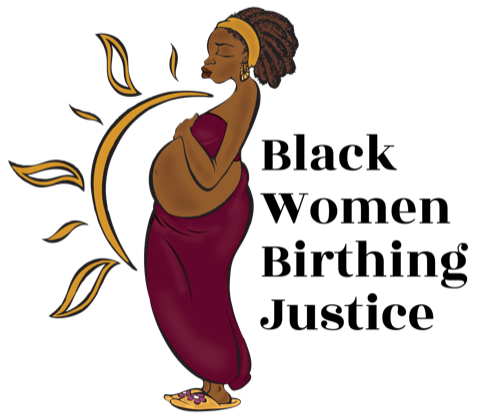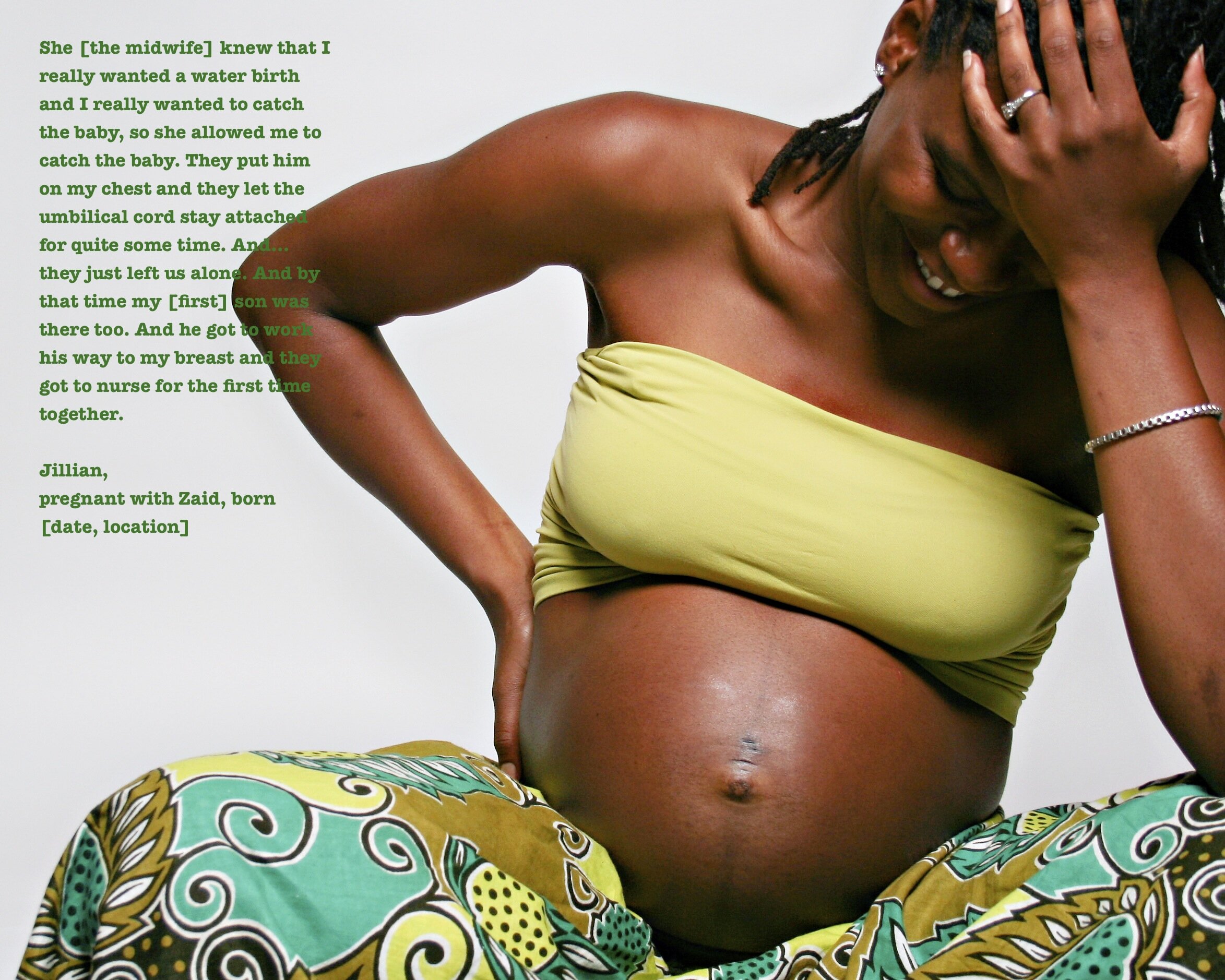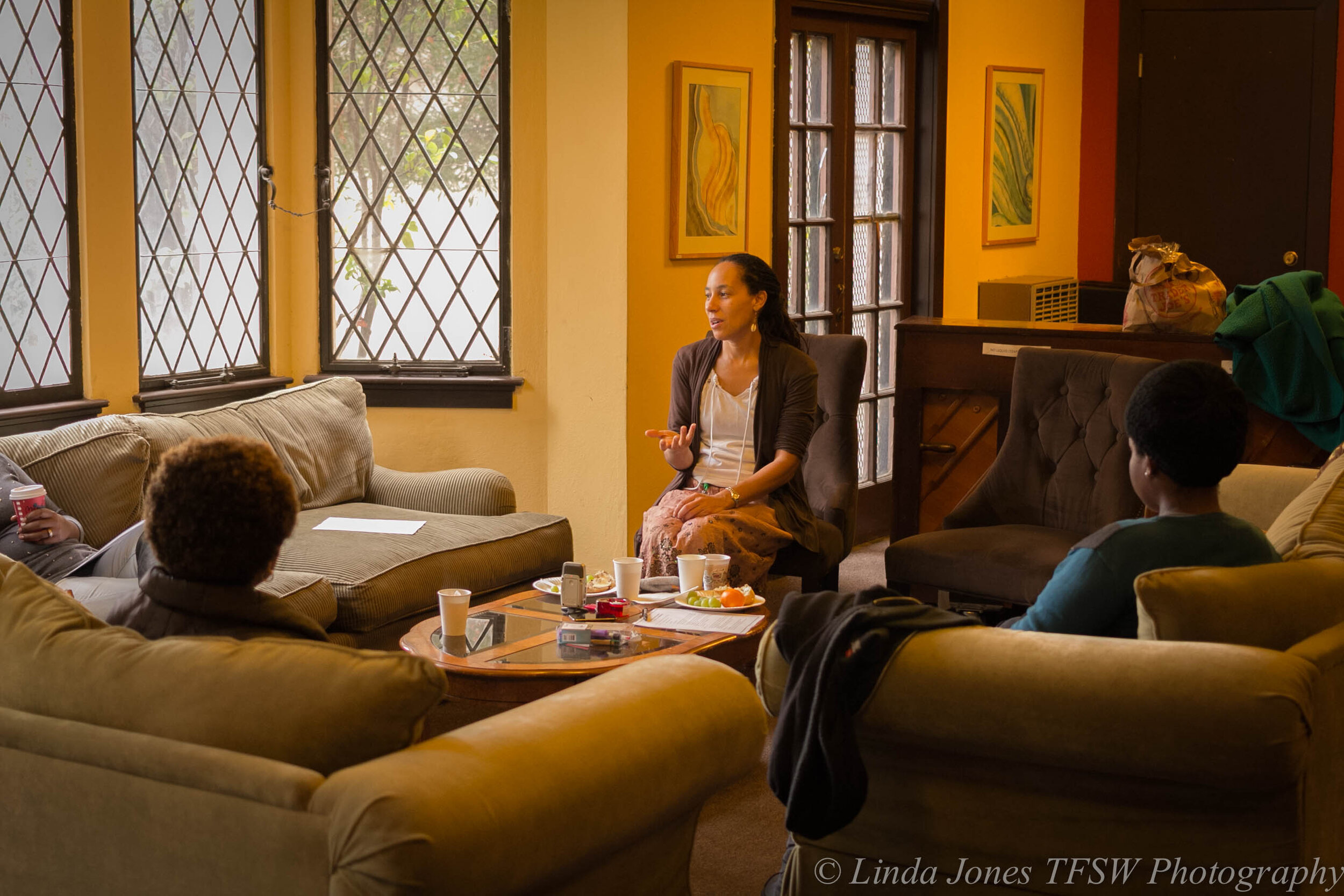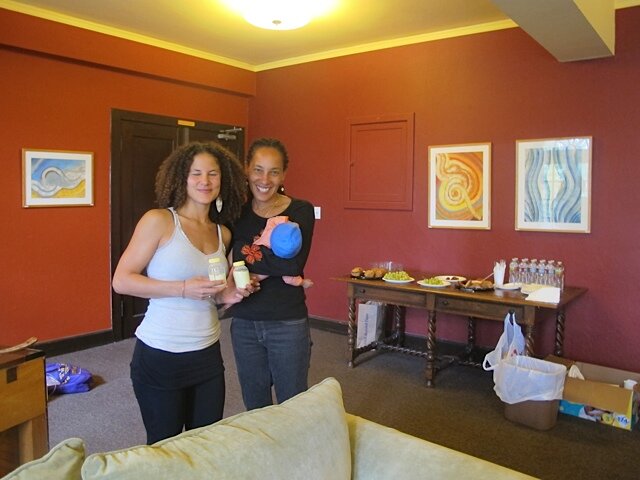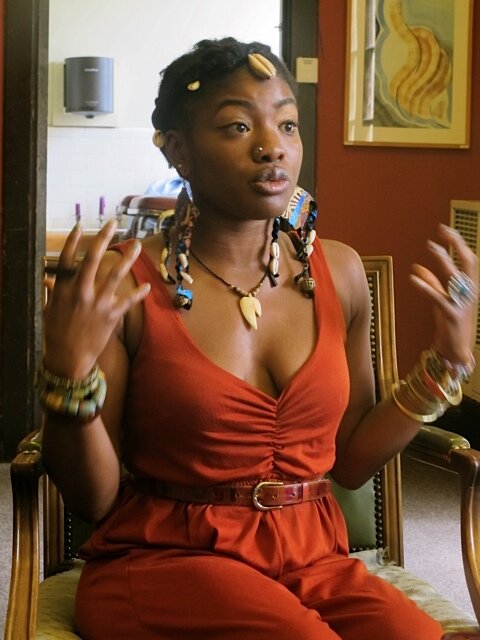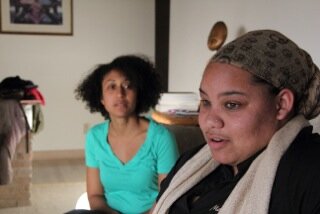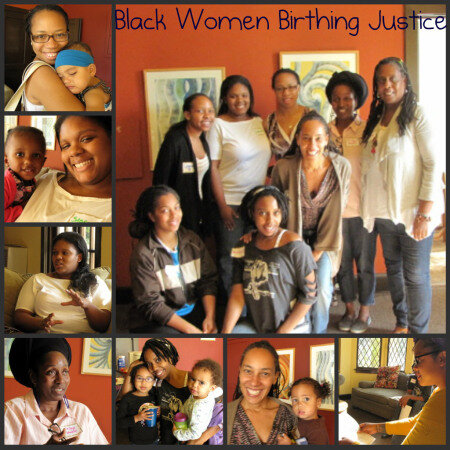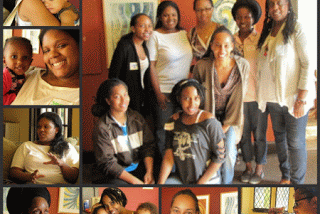Our Herstory
The seeds of Black Women Birthing Justice were planted in 2010 when Chinyere Oparah came to visit Cherisse Harper and her week-old son, Kuba-Ra. Cherisse told Chinyere that her planned home birth had become a struggle when her family had called the paramedics who had tried to frighten her into going to the hospital. Chinyere shared her own story of being subjected to inaccurate tests that suggested her healthy baby had a terminal birth defect, and firing an ObGyn who had seemed to doubt that a 40+ mom with fibroids could push out a baby naturally. The two women wondered why they, as strong, assertive women, had experienced so much disempowerment during pregnancy and childbirth. A few weeks later, Cherisse’s midwife, Nonkululeko Tyehembe, visited from New York and together, the three made a commitment to creating a space for Black women to speak out about birth injustice and to build a national platform to transform Black women’s experiences of childbirth.
Cherisse and Chinyere were quickly joined by doula Linda Jones, prison activist Harriet Davis and reproductive justice advocate Shanelle Matthews. The group began to meet formally in June 2011 and soon came up with the name Black Women Birthing Justice, and a collective structure where everyone would share in decision-making. We decided to begin with an action research project documenting 100 Black women’s birth stories as a way to build community and create knowledge for social change. At SisterSong’s 2011 conference, BWBJ member Shanelle Matthews joined 30 birth warriors from around the U.S., in a discussion about the need for the reproductive justice movement to embrace birth oppression as a central concern for women of color. The activists present in that gathering, including members of Black Women Birthing Resistance and Mobile Midwives called for a national movement led by women of color, to challenge medical violence and coercion during childbirth, to reclaim midwifery traditions in communities of color and to raise awareness among women of color about strategies to overcome birth injustice. Shortly afterward, the BWBJ Collective drafted a definition of “birth justice” which has become widely used as a foundation statement for the emerging birth justice movement.
We acknowledge and honor all the labor by former collective members who have been a part of BWBJ's Herstory
Eniola Abioye
Helen Arega
Aminah Barber
Lia Barrow
Natalie Berbick
Jamilah Bradshaw
Ronnesha Cato
Heather Clarke
Ayanna Davis
Jillian Faulks-Majuta
Cherisse Harper
Dantia Hudson
Shanelle Matthews
Traver Riggins
Carly Ritter
Karen Scott
Anjanette V
Helen Woldai
